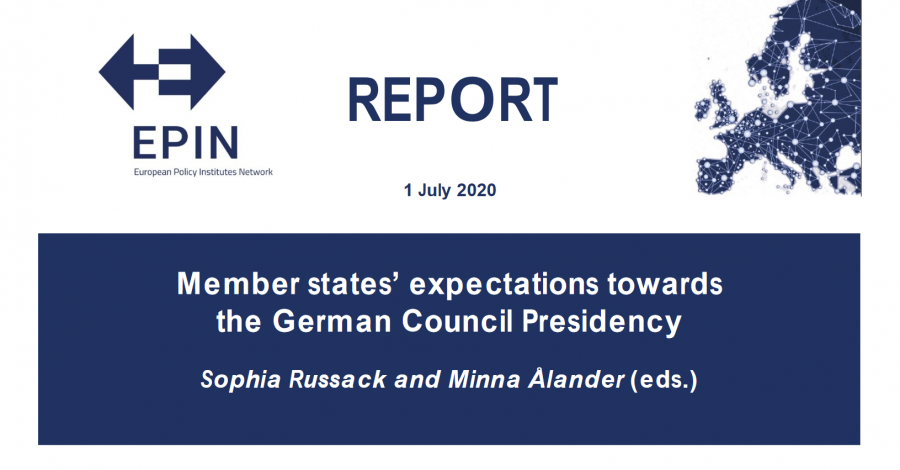Member states’ expectations towards the German Council Presidency
Christian Kvorning Lassen from EUROPEUM Institute for European Policy together with Jan Kovář from Institute of International Relations Prague wrote a commentary "Czechia: economic recovery at the expense of climate and solidarity" for the EPIN Report publication, concerned with Germany's EU Council presidency, which starts in July.
As Germany assumes the presidency of the Council of the EU, the Union is facing the “biggest test of its history” according to German Chancellor Angela Merkel. The challenges of the Covid-19 pandemic and a severe economic recession could not be more extraordinary. The weight of expectations on Berlin to assume a European leadership role during the presidency are as extraordinary as those challenges. What exactly do other member states expect from Germany and how do they set their policy priorities? To answer this, the European Policy Institutes Network (EPIN) has compiled an analysis of 15 different national perspectives.
Czechia hopes that Germany will forge a compromise that ensures more funding for the cohesion policy and more flexibility to use those funds, including those allocated to the European Green Deal. Czechs look towards the German presidency in hope that the salience of the Green Deal will fall, arguing instead that the pandemic requires a delay – or even abandonment – of a principally green-based restructuring of the economy. The fact that studies based on the previous financial crisis indicate that green investments are ideally positioned to spur economic recovery is ignored; the resistance towards climate neutrality in Czechia is ideological rather than empirical.
You can read the whole contribution through the PDF button on the right side of this page.
You can find other publications of the EPIN network, of whom we are a member, here.
#EPIN #Germany #EU presidencyDeputy Director & Head of Research
Expertise: Migration/European migration crisis, EU foreign policy, Scandinavian politics, populism, EU enlargement policy
Related articles
- Blog | Business-as-usual between Germany and China as a disruptive element for the European Union
- BLOG: A failed foreign policy? Germany's reliance on Russian energy.
- POLICY BRIEF: French presidency of the EU and Strategic Compass: More EU military missions to come?
- SWP: Between change and continuity: European expectations towards Czech and German EU policies after the 2021 elections
- Impacts of the Covid pandemic on the democracies of EU countries
- POLICY PAPER: Czech EU presidency: Basis for a Successful Implementation
- Germany and the V4: renewed cooperation opportunities in the new political context
- Is Germany too much for us?
- Europe awaits: German GroKo and what it means for European partners
- France and the V4 in a multi-speed Europe: rough times ahead?
- The change in the balance of power after Brexit
- Duel for the next German chancellor
- A View from Central Europe: Germany and V4 moving further apart?
- Pegida versus Antipegida
Staroměstské náměstí 4/1
Prague 1 - Staré Město
110 00
tel.: +420 212 246 552
email: europeum@europeum.org
https://www.europeum.org
